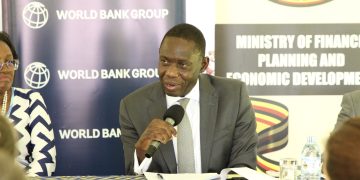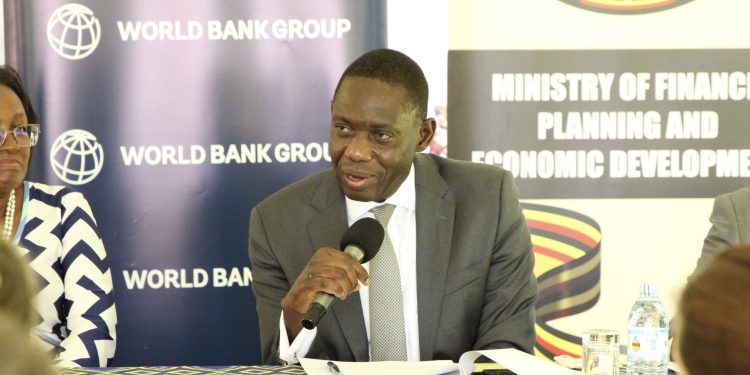The Bank of Uganda’s Monetary Policy Committee (MPC) has maintained the Central Bank Rate (CBR) at 10.25%.
According to Michael Atingi-Ego, Deputy Governor, Bank of Uganda, the MPC assessed that while the near-term balance of risks around inflation remains skewed to the upside, the current monetary conditions are adequate to contain inflation around the medium-term target of 5%.
Adding, “As a result, the MPC maintained the CBR at 10.25%. The bands on the CBR remain at +/-2 percentage points, and the margins on the CBR for the rediscount and bank rates at 3 and 4 percentage points, respectively. Consequently, the rediscount and bank rates will remain at 13.25% and 14.25%, respectively,”
He explained that the decision supports the objectives of bringing inflation to its medium-term target while supporting economic growth, consistent with socio-economic transformation.
“The MPC will ensure that the monetary policy stance remains conducive to sustainable economic growth amid price stability,” he said.
Atingi-Ego noted that domestic inflation has risen moderately, lower than previously projected, largely due to the exchange rate stabilising with a bias towards appreciation since March 2024.
He explained that Uganda’s inflation remains among the region’s lowest with an average of 3.2% in the twelve months to May 2024.
“Nonetheless, annual headline inflation rose to 3.6% in May 2024 from 3.2% in April 2024, while core inflation increased to 3.7% from 3.5%,” he said.
The inflation uptick is primarily driven by rising healthcare, education, and transportation service costs, coupled with higher prices for solid and liquid fuels.
He noted that tight monetary conditions, declining global inflation, and a favourable domestic food supply have partially offset inflationary pressures.
Looking ahead, inflation in FY2024/25 is projected to remain moderate, broadly reflecting stable demand conditions and contained cost pressures.
The inflation forecast has been slightly revised downwards relative to the April 2024 round, largely due to a less depreciated shilling exchange rate.
Inflation is expected to rise and average between 5.0% and 5.4% in the short term (12 months ahead) before stabilising around the medium-term target of 5% in the second half of 2025.
He noted that Uganda’s economy remains resilient, although the recent economic indicators have been mixed but consistent with growth which is projected at 6% in FY2023/24.
“Indeed, the composite index of economic activity (CIEA) suggests a slowdown, with growth at 0.9% quarter-on-quarter and 5.3% year-on-year in the quarter to April 2024. Nevertheless, economic growth for FY2024/25 is projected between 6.0% and 6.5%, rising above 7% in subsequent years,” he said.











